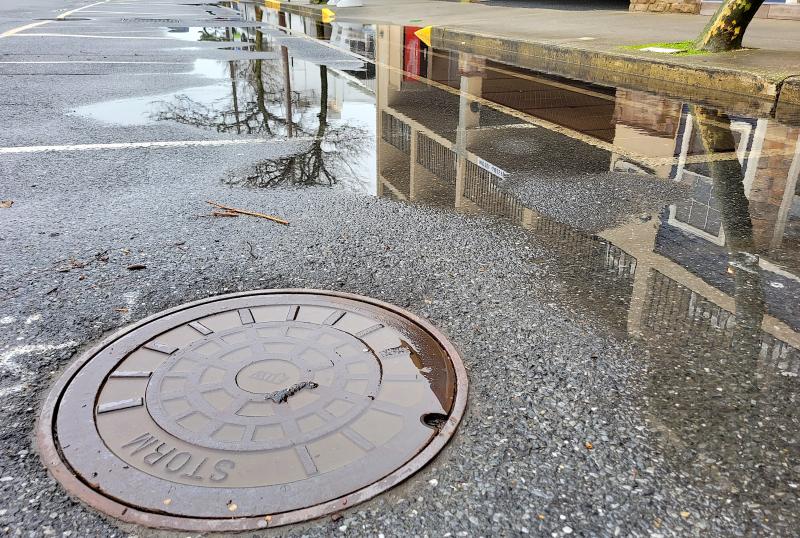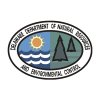Rehoboth Stormwater Utility Task Force begins work
With millions of dollars of stormwater infrastructure waiting to be installed or upgraded, the newly created Rehoboth Beach Stormwater Utility Task Force conducted its first meeting April 5.
The city has been moving toward the creation of a stormwater utility for years. In 2018, Rehoboth took advantage of a Resilient Communities Partnership Grant provided by the state. The grant analyzed impervious surface coverage within a number of coastal communities, including Rehoboth. That report showed an increase in impervious surface area in Rehoboth due to the redevelopment of residential properties.
Shortly after the report came out, in March 2020, the city hired AECOM, an international infrastructure consulting firm, to assess funding levels and develop options for addressing shortfalls, and assist in developing a stormwater utility.
Earlier this year, the task force was formed. The recent meeting was used for an overview of the situation and where things would go into the future.
Public Works Director Kevin Williams said there are several projects in the capital improvement plan that have been pushed back because the city is waiting for a dedicated funding stream. The task force wouldn’t be meeting if city officials didn’t think creating the utility was a good idea, he said.
Two projects discussed during the budgeting process are the design and construction of a stormwater basin in the area of Kent, Cookman and Sussex streets with an estimated price of $1.4 million, and stormwater improvements on Bayard Avenue estimated at roughly $1 million.
Williams said a lot of the city’s stormwater drainage system is undersized. It was designed years ago, and now there’s a lot more impervious surface, he said.
Williams said the industry expectation is that sooner or later, the city will have to regulate its stormwater output. The city’s goal is to act like it’s regulated before it’s being told to do it, he said.
AECOM engineer Dave Athey said there are roughly 1,800 stormwater utilities across the country, with three already in existence in Delaware – Wilmington, Newark and Lewes. The utilities are far from uncommon, but there aren’t too many in Delaware.
Athey said he’s been tasked with finding a mechanism to fund the work, not the solution to the stormwater issues. No two utilities are the same; they all have their own way of doing things, he said, showing a slide with the different rates in Delaware.
In Wilmington, which has a combined sewer and stormwater system, single-family residential lots pay $4.95 to $21.78 a month; non-residential rates vary depending on impervious area.
In Newark, single-family lots pay $2.12 to $6.37 a month. Similar to Wilmington, non-residential rates vary depending on the impervious area.
In Lewes, residential lots pay $5 a month, commercial pays $10 a month and industrial pays $20 a month. The slide with the rates used for Lewes were prepared before a recent change by the Lewes Board of Public works. The rates are now: residential lots pay $6 a month, commercial pays $12 a month and industrial pays $24 a month. These rates will increase every year for the next five years.
Athey said there needs to be a defendable expense used with the money, and this utility would be a fee, not a tax.
Task force member Jan Konesey, who also sits on the board of adjustment, said stormwater drainage is a critical issue. The concerns raised by neighbors at the last two board of adjustment cases have been about stormwater runoff, she said.
Task force member Suzanne Goode said there’s basically no difference and she wasn’t sure homeowners are going to be on board.
Task force member Bruce Williams, who helped set up a similar utility in Tacoma, Md., said the difference between the two is that some entities don’t pay taxes. Fees broaden the net of who pays the utility. Athey nodded his head in agreement.
The task force’s next meeting is scheduled for Tuesday, May 3. Athey said he had planned to take a deeper dive on the proposed model, but the group indicated it would like to discuss expenses, and he said that was fine.
Chris Flood has been working for the Cape Gazette since early 2014. He currently covers Rehoboth Beach and Henlopen Acres, but has also covered Dewey Beach and the state government. He covers environmental stories, business stories and random stories on subjects he finds interesting, and he also writes a column called Choppin’ Wood that runs every other week. He’s a graduate of the University of Maine and the Landing School of Boat Building & Design.























































